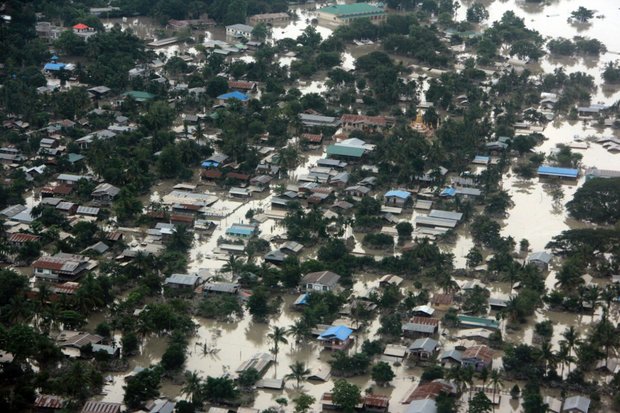![Relief efforts in Kale [Kalay] (PHOTO:DVB)](https://www.dvb.no/wp-content/uploads/2015/08/rsz_embed.jpg)
Several countries announced aid packages to answer the plea, in stark contrast to the decision made by Burmese military leaders in the wake of the 2008 Cyclone Nargis when they refused to accept foreign assistance.
Australian Minister for Foreign Affairs Julie Bishop announced a AUS$2 million (US$1.5m) support package, to be distributed with the help of a humanitarian advisor that will depart for Burma next week.
Japan also announced emergency assistance, totaling US$150 000, joining India, Norway, Singapore, China, USA and Thailand in sending relief efforts to help rebuild large parts of western Burma that continue to be overwhelmed with landslides and monsoonal flooding in the wake of Cyclone Komen.
Neighbouring Thailand stated plans for a $5 million baht package ($150 000), to be used to provide food to the regions affected. Government spokesperson Weerachon Sukhontapatipak told Bangkok Post the government planned to hand over the aid package to the Burmese ambassador.
Singapore Red Cross will work in conjunction with Myanmar Red Cross to distribute a $100, 000 donation. China declared a $300,000 contribution.
Norwegian Foreign Minister Børge Brende announced from the ASEAN Foreign Minister’s meeting in Kuala Lumpur a US$1.2 million contribution toward aid in the region.
Meanwhile, John Kerry, the US Secretary of State, said that his embassy in Rangoon was working closely with Burmese officials to determine the priorities for the aid.
“We express our hopes that the impact of this can obviously be dealt with minimal further loss of life and disruption,” Kerry told a meeting of ASEAN foreign ministers in Kuala Lumpur.
Jose Ravano, the acting country director for Save the Children in Burma, said up to 80, 000 children need access to essential hygiene items, noting that children are the most vulnerable victims in natural disasters.
“This disaster has left tens of thousands of children vulnerable and we are particularly concerned for their welfare and safety as whole regions have been left under water,” he said.
“Children may be in distress due to the displacement and destruction, and some have fled their homes without any essential supplies.”
[related]
Burmese state officials have declared disaster zones in Arakan and Chin states, and Sagaing and Magwe regions.



